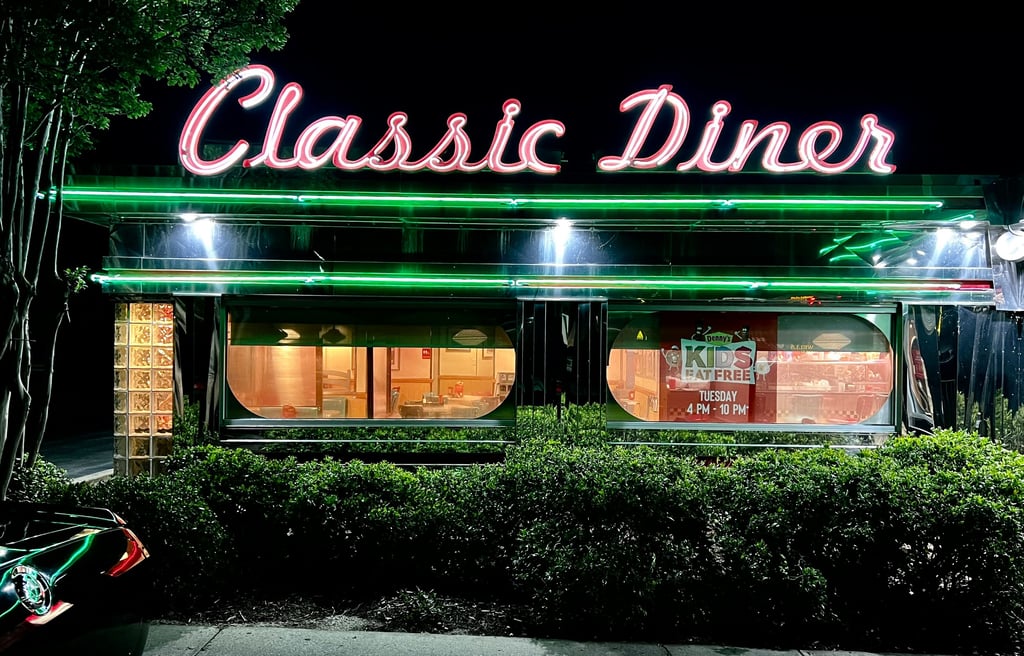What Do Guests See First: Your Restaurant… or Your Google Reviews? And Why It Matters.
Most customers judge your business before you ever see their face. Your Google reputation is the real first impression—public, permanent, and impossible to hide.
Michael Westhafer
11/15/20254 min read


Walk into any restaurant before a shift and you’ll see the same routine: wiping down tables, rolling silverware, spot-sweeping the dining room, checking bathrooms, stocking the line — well, you get the picture. Operators work hard to make the place look ready. But here’s the truth nobody likes to say out loud: most guests never see any of that until after they’ve already judged your restaurant online.
Their real first impression isn’t your food, your vibe, or your service — it’s your Google reviews:
your stars, The number of reviews, and how recent they are.
That’s what customers look at before deciding if your restaurant is worth taking a chance.
And if that digital first impression doesn’t build trust instantly?
They scroll past you. They don’t choose you. And you never even know you lost them.
Google Is Where First Impressions Actually Happen
These days, customers don’t start their search with your storefront.
They start with:
Google Search
Google Maps
Somebody types: “best pizza near me” or “where to eat tonight.”
Google instantly sorts every restaurant based on three simple trust signals:
Your review score
How many reviews you have
How recent those reviews are
That combination creates an instant “trust score” in the customer’s mind.
They don’t think about it.
They don’t analyze it.
They just make a decision.
Fresh reviews = trustworthy
Lots of reviews = people go here
Good score = safe choice
Old reviews or too few recent ones?
That feels risky.
Your dining room, your service, your clean bathrooms — none of that gets a chance to speak until Google approves you first.
Why You Need Reviews Every Day (Not Every So Often)
Here’s a shift most operators never make:
Review recency and frequency matters just as much as your rating.
A place with steady reviews every week looks “alive.”
A place with great reviews from last year looks forgotten.
Customers want to know:
“Are people eating here now?”
Recency creates confidence.
Confidence drives clicks.
Clicks turn into customers.
And here’s where human behavior kicks in:
We follow the herd.
If everyone else is going somewhere, we assume it’s good.
If a restaurant is getting new reviews consistently, people assume:
the food is good
the service is solid
the place is busy
the experience is worth trying
Review frequency is momentum.
Momentum is trust.
And asking for reviews?
It isn’t desperate and cheap — it’s a discipline.
It’s part of running a modern restaurant.
The places winning on Google didn’t “get lucky.”
They built a system.
Social Proof Is Just Herd Behavior With Better Lighting
People don’t trust restaurants because restaurants say they’re great.
They trust restaurants because other customers say they’re great.
That’s social proof.
It’s also herd mentality at work.
Customers think:
“If other people like it, it must be good.”
“If it’s getting a lot of reviews, it’s probably busy.”
“If it’s busy, it’s probably worth a shot.”
This is basic human behavior, and Google puts it on full display.
Your job isn’t to fight the herd — it’s to guide it.
Keep the reviews flowing, and the herd follows you.
Let things go quiet, and the herd loses confidence fast.
Responding to Reviews Isn’t Just for the Reviewer — It’s for Everyone Watching
Most operators think review replies are for the customer who left the review.
They’re not.
Your response is as much for that customer as it is for everyone else searching for a place to eat.
A reply shows:
you care
you’re paying attention
you respect your guests
you take feedback seriously
That builds credibility — the kind customers feel.
And trust me:
People notice when a restaurant responds.
Especially people who’ve left complaints elsewhere and got ignored.
A thoughtful reply to a 1-star review can win over thousands of people scrolling through your listing.
A warm reply to a 5-star review shows heart, culture, and pride.
Your responses are your public character.
They prove you give a damn.
Google Rewards Restaurants Who Actually Engage
Google isn’t tasting your food.
Google is watching your activity.
Two things matter most:
1. Review frequency
— Are people talking about you consistently?
2. Review responses
— Are you showing that you’re involved?
Google sees active restaurants as relevant.
Relevant restaurants get pushed higher in search and the map pack.
Higher ranking → more visibility
More visibility → more clicks
More clicks → more customers
This isn’t guesswork.
It’s the system.
Your competitors aren’t beating you with better food.
They’re beating you with better engagement.
A Simple Daily Review Routine That Actually Works
Let’s keep this simple and real — something any restaurant can do.
Every Day, Every Shift
Ask all your guests for a review. Not some. All.
Respond to every review within 24 hours. No exceptions.
Share one positive review on social media. Easy content. Big impact.
Track how many new reviews came in today. Awareness = consistency.
Every Week
Make it fun:
Run a team contest for review mentions by name.Celebrate the wins in pre-shift.
Share standout reviews with FOH and BOH.
Swap out or add new photos to your Google listing every few weeks.
This routine builds trust fast.
And trust turns into traffic.
Restaurants that treat this like oxygen grow.
Restaurants that treat it like homework struggle.
Your Reputation Is the One Thing You Can’t Hide
Every restaurant has a reputation.
But now, every reputation is public.
Your Google reviews are the most visible, most searched, most influential part of your business.
And here’s the mindset shift that separates operators from leaders:
You can’t That customers talk about your restaurant,
but you can control how often they say it and how you respond.
That’s the restaurant game in 2025 and beyond.
That’s how you build a restaurant customers trust before they ever walk in your door.
When your digital reputation earns trust, the rest of the dining experience becomes validation — not persuasion.
Your Google reviews are the real first impression.
Own them. Shape them. Protect them.
And your restaurant won’t just get chosen — it’ll get trusted.


